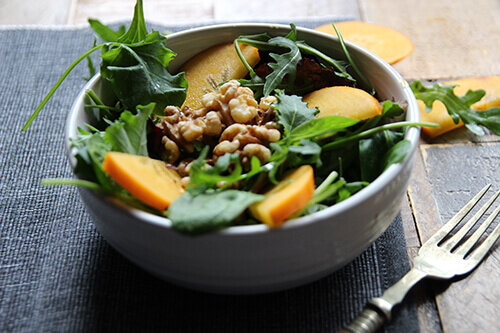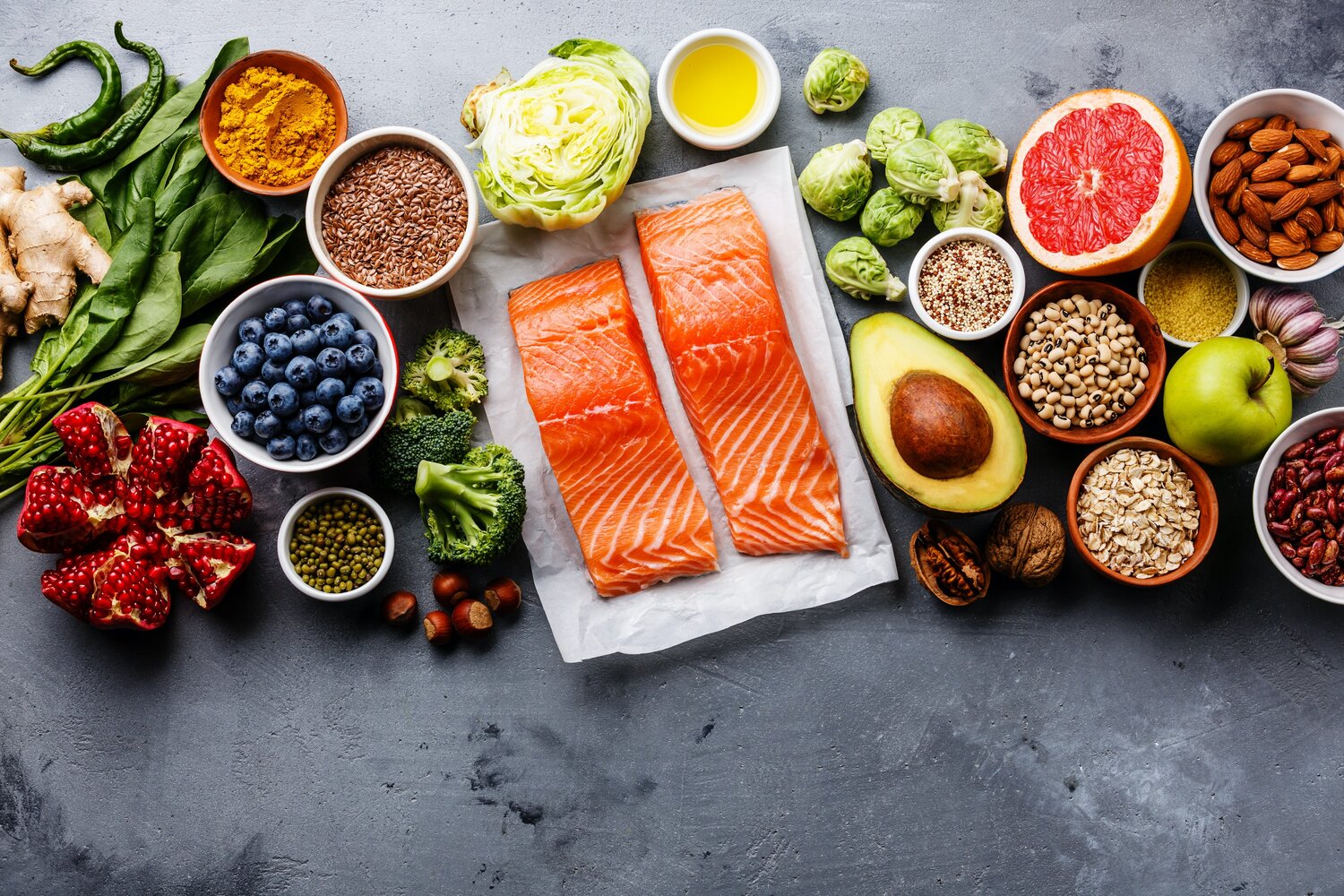Learning to cook and prepare healthy foods doesn’t just taste great, it’s also the key to warding off disease, staying trim and keeping your heart healthy.
That being said, not all healthy foods are made equal, and while there is no one single ingredient that holds the key to good health or disease prevention, there are definitely some fridge and cupboard staples that pack a more potent punch of essential vitamins and nutrients than others.
The next time you head to the supermarket, make sure you have these nutrient-dense foods on your shopping list…
1. Blueberries
Forget artificial sweeteners and syrups, blueberries are secretly the healthiest way to add a sweet kick to a smoothie or a bowl of porridge, thanks to their impressive nutritional profile.
“Blueberries are one of the most nutrient-dense berries going, thanks to the fibre, vitamin C, vitamin K and manganese loaded in each handful,” says nutritionist Emma Derbyshire. “They also have one of the highest levels of antioxidants [molecules that fight free radicals in your body], specifically anthocyanins.”
Derbyshire says that in recent years there has been a growing body of science that suggests that berries could help to offset cardiovascular diseases and help to preserve heart health too. “Studies have also shown that eating blueberries can help to improve mood and aspects of cognition,” she adds.
An 80g serving (two handfuls) of blueberries counts as one portion of your five a day.
2. Spinach
There’s a reason why Popeye relied on spinach to help him out of dangerous situations. This leafy vegetable has an unusually impressive protein content. In fact, one cup of spinach has nearly as much protein as an egg.
It’s also a good source of vitamin K, which is important for bone health, and vitamins A and C, which help to keep the immune system in good working order.
Manganese, magnesium, iron, vitamin B2 and heart-healthy folate are just a few of the other vitality-bringing qualities packed into each handful. If you don’t fancy chowing down on the fresh leaves, simply stir a handful into your soup, blend it into a green smoothie or disguise a layer in a bean burrito.
3. Walnuts

Did you know that walnuts are rich in monounsaturated and polyunsaturated ‘good’ fats which are important to heart health?
In fact, a study published in The Journal of Nutrition found that regularly snacking on these delicious nuts can significantly reduce the risk of cardiovascular disease.
Walnuts are the king of the nut family because they pack more disease-fighting antioxidants than any other variety. They’re also a valuable vegan and veggie source of omega 3 – an essential fatty acid which is good for your joints, brain and eyesight.
4. Broccoli
Whether tossed into a stir fry or enjoyed with a Sunday roast, broccoli is one green vegetable that would should all probably strive to eat more of.
Why? Because as well as being super tasty, it’s also rich in vitamin K (essential for blood clotting), vitamin C (which builds collagen), fibre (which promotes good digestive health) and potassium – a mineral which is essential for the function of nerves and heart.
If you’re not a major fan of the taste, the good news is that a portion of just two broccoli spears counts as one of your five-a-day.
5. Avocado
There’s a reason why millennials love avocado. Aside from looking great on the ‘gram, the creamy gre
en goodness inside is also fantastic for overall health.
Avocados are full of monounsaturated healthy fat, which research has found can help to protect against heart disease and lower blood pressure. They’re also rich in vitamin E, an antioxidant which helps to protect cells from the damage caused by free radicals.
Because they have a large ‘good’ fat content, avocados are high in calories – an average avocado has around 300 calories. The good news is that half an avocado counts towards your five-a-day, so if you’re trying to lose weight, pop the other half in the fridge and save it for the next day.
6. Black beans
Like most types of beans and legumes, black beans are high in protein and dietary fibre – which makes them an excellent meat substitute for vegans and vegetarians who are looking for alternative sources.
The plant-based protein in beans also helps to keep you fuller for longer, meaning you won’t have a rumbling tummy an hour after chowing down on a salad if you throw a bunch of beans into the mix.
As well as working out far cheaper than regularly buying chicken, beef and pork, black beans are also a good source of antioxidants, potassium, iron and the mineral magnesium, which the body needs to keep muscles and bones in good nick.
As they’re super versatile, beans can be substituted in many meat recipes, like burgers and burritos, too.





